How to recover deleted images and videos on Android
This method helps you:
- Link to photo recovery software
- Restore photos with Recuva software
Storing data including images and videos directly on the phone is a common problem today, however, that is also the reason why many people mistakenly delete their important images and videos without even knowing it.
In the previous article, Taimienphi shared with you how to retrieve deleted photos and videos on iPhone , however with this method, you can only restore data that was deleted not long ago (no more than 30 days). What about on Android phones? On Android, you will easily recover deleted data because the compatibility of the open source operating system is very good with third-party applications, along with the combination of many applications from developers. That's why today we will guide you how to recover deleted images and videos on Android phones . Please follow along on how to retrieve photos and videos on Android phones below.
Method 1: Recover deleted data on Android phones with Recuva software
To completely recover deleted photos and videos on Android, it is best to use data recovery software on your computer to get back photos and videos effectively. Here we recommend you use Recuva to recover, Recuva is one of the data recovery software used by many people.
Step 1: Download the software:

- Connect your phone to the computer and start Recuva. Next, click to select the data format to restore, here TipsMake chooses to restore images -> select Pictures -> select Next
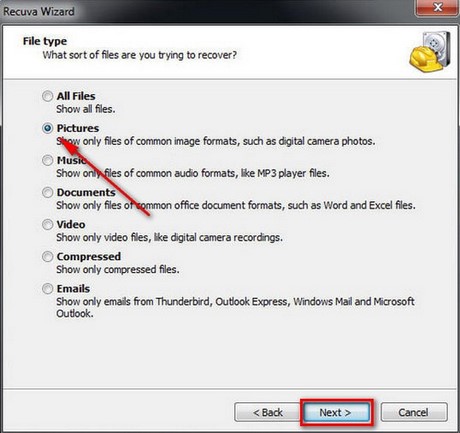
Step 2: Here you select the folder containing the photo and video files you want to restore and click Scan to let Recuva scan for deleted photo or video files.
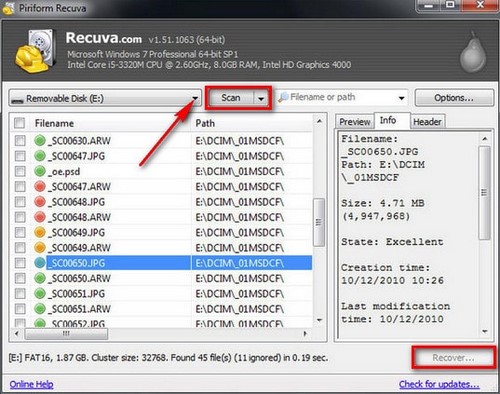
After identifying the images and videos you need to retrieve, select them and click Recover so the program will retrieve them for you.
Method 2: Recover photos, videos, and recover deleted data on Android phones
If you don't have a computer, you can also use a data recovery application right on your Android phone, DiskDigger photo recovery.
Link to download DiskDigger photo recovery:




Using DiskDigger for Android is very simple, after opening the application it will display two options: Basic scan (basic scan) to support non-rooted devices and Full scan (full scan) to support rooted devices. be Rooted.
If your device is Rooted, the application will allow you to select the memory partition to scan. Your device's internal storage usually appears as /data , and your device's SD card usually appears as /mnt/sdcard .
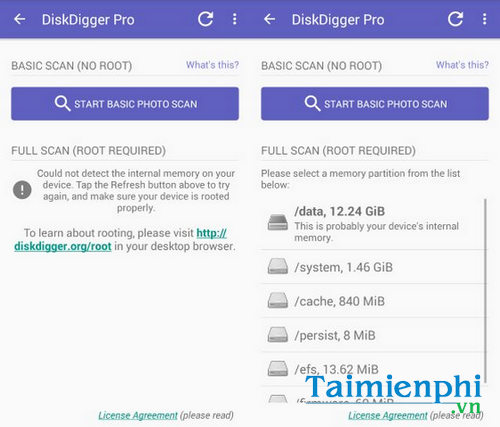
If your device is not Rooted, click the Start Basic Photo scan button to continue and go to the Scanning for files section below.
When you use the app on a Rooted device, you will be able to see a superuser request window. Now click Allow to grant access to DiskDigger.
After you select the memory devices to scan, you will choose the file types you want to recover. To achieve better performance, you should select the file types that you really need to recover.
When the application starts scanning for deleted files, you will see on the main interface the DiskDigger screen displaying recovered files.
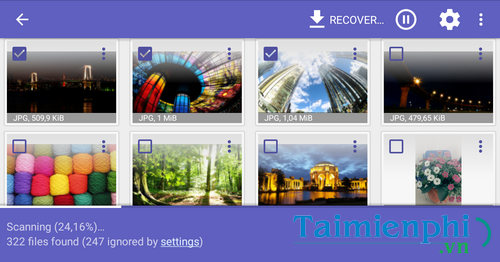
Here you can select files to recover by checking the checkbox of each file. You can also go to the menu displayed by the 3-dot icon on each file to select recovery options for each file.
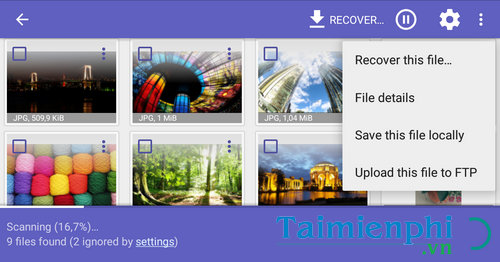
In addition, to select a large number of files, select Select all to select all files via the 3-dot icon in the upper right corner of the application.
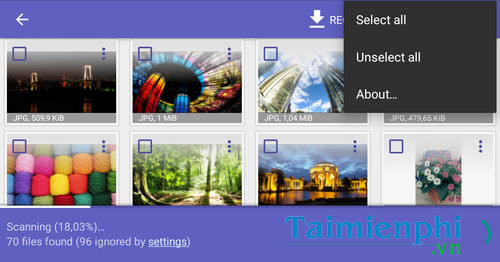
Clicking the Settings button with the gear icon in the upper right corner of the application will allow you to filter the recovered files based on size and file type. If you want to impose a minimum size on the file displayed, click the checkbox next to Minimum file size and enter the minimum number of bytes below. By default, the minimum size is enabled when recovering images, to filter out the most other images that can fit into your device's memory.
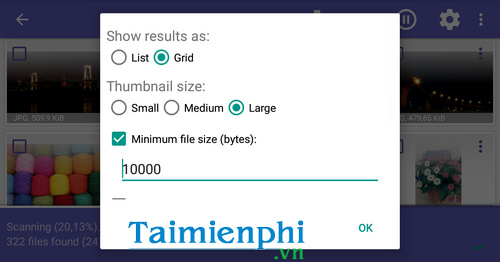
DiskDigger provides three different ways for you to save recovered files: Save to an application , Save to device , and FTP upload . To recover one or more files, click the check mark next to the recovery files you want to restore, then click the Recover button in the upper toolbar.
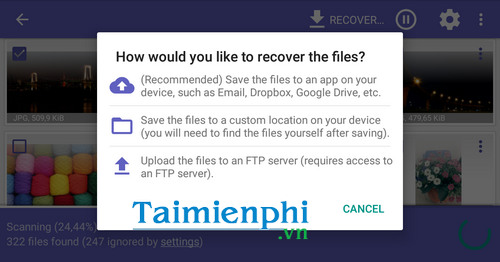
The application itself also recommends that you use the method of saving files through applications that use cloud computing technology such as Dropbox, Google Drive, Email.

So above, we have shown you how to retrieve and restore deleted images and videos on Android devices using Recuva data recovery software. In addition, to recover lost data with Recuva , you also need to understand the program's features to recover important data, avoiding unwanted data loss.
Depending on each phone, there will be many different ways to restore deleted images and videos on OPPO, Samsung, Xiaomi. phones. Please pay attention to recover deleted images and videos on OPPO, Samsung phones. easily and with high efficiency.